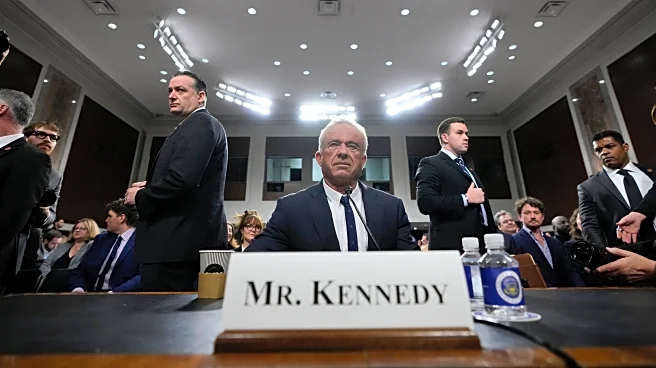What's Happening?
A federal employees' union has filed a motion asking a judge to compel the Trump administration to fund the Consumer Financial Protection Bureau (CFPB). The union's action comes after the CFPB announced
it might run out of funds by the end of the year. President Trump has been attempting to dismantle the CFPB since taking office, appointing Russell Vought as the acting head. Vought has managed to halt most of the bureau's activities, although his efforts to dismiss the majority of its employees are currently stalled in litigation. The CFPB's funding, which is sourced from the Federal Reserve rather than congressional appropriations, is intended to ensure its independence from political budget disputes. However, the bureau claims it cannot request additional funds from the Fed due to the central bank's current financial losses.
Why It's Important?
The legal challenge by the union highlights ongoing tensions between the Trump administration and federal agencies designed to protect consumer interests. The CFPB plays a crucial role in regulating financial institutions and safeguarding consumer rights, and its potential defunding could significantly impact its ability to enforce regulations. The union's motion underscores the importance of maintaining the bureau's operational capacity, which is vital for consumer protection and financial oversight. The outcome of this legal battle could set a precedent for how independent agencies are funded and managed, potentially affecting their autonomy and effectiveness.
What's Next?
The court's decision on the union's motion will be pivotal in determining the future of the CFPB's funding and operations. If the judge rules in favor of the union, the Trump administration may be required to find a way to fund the bureau despite the Federal Reserve's financial situation. This could lead to further legal and political challenges, as the administration continues its efforts to reshape federal agencies. Stakeholders, including consumer advocacy groups and financial institutions, will be closely monitoring the situation, as it could influence regulatory practices and consumer protection measures.











